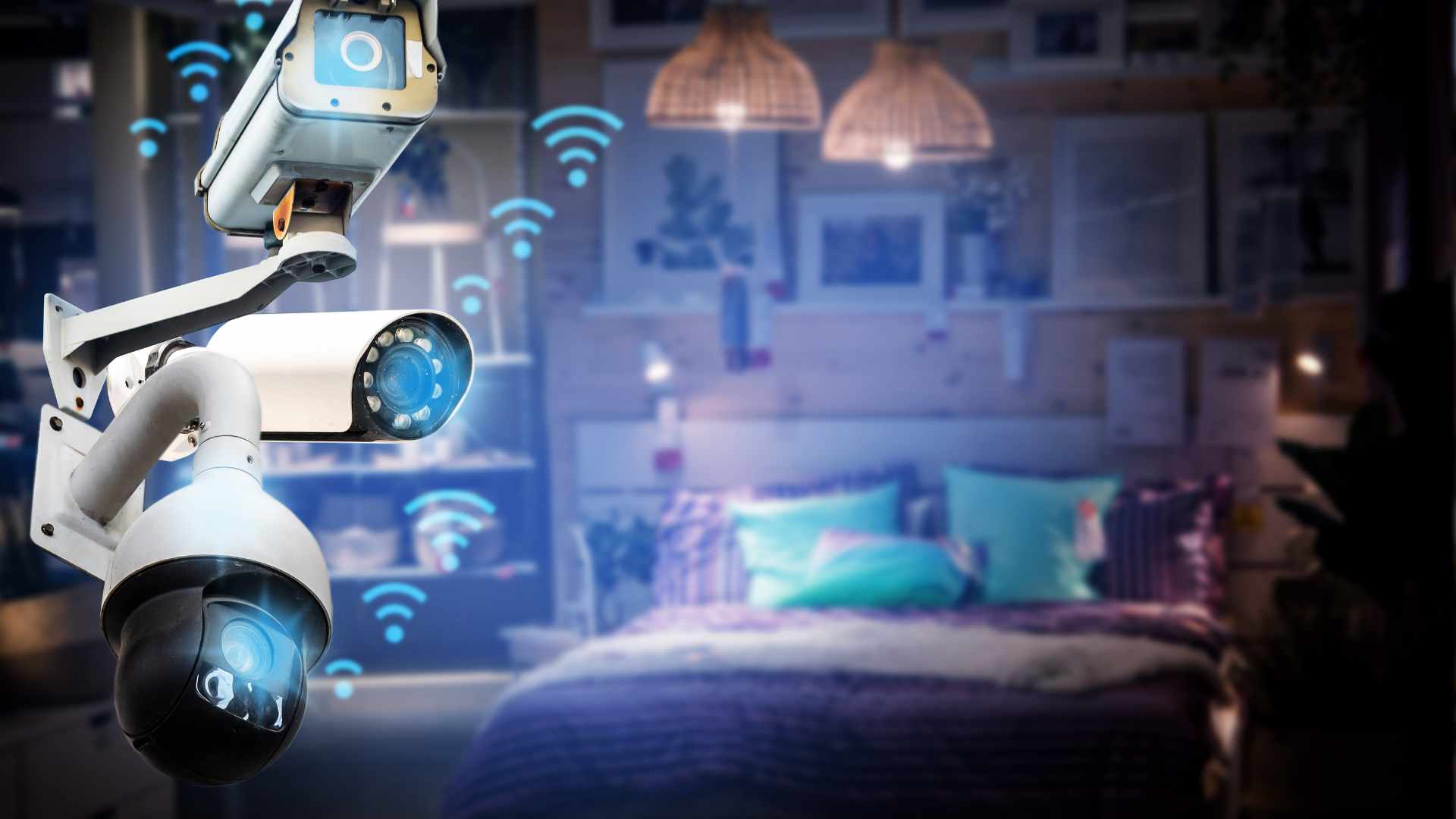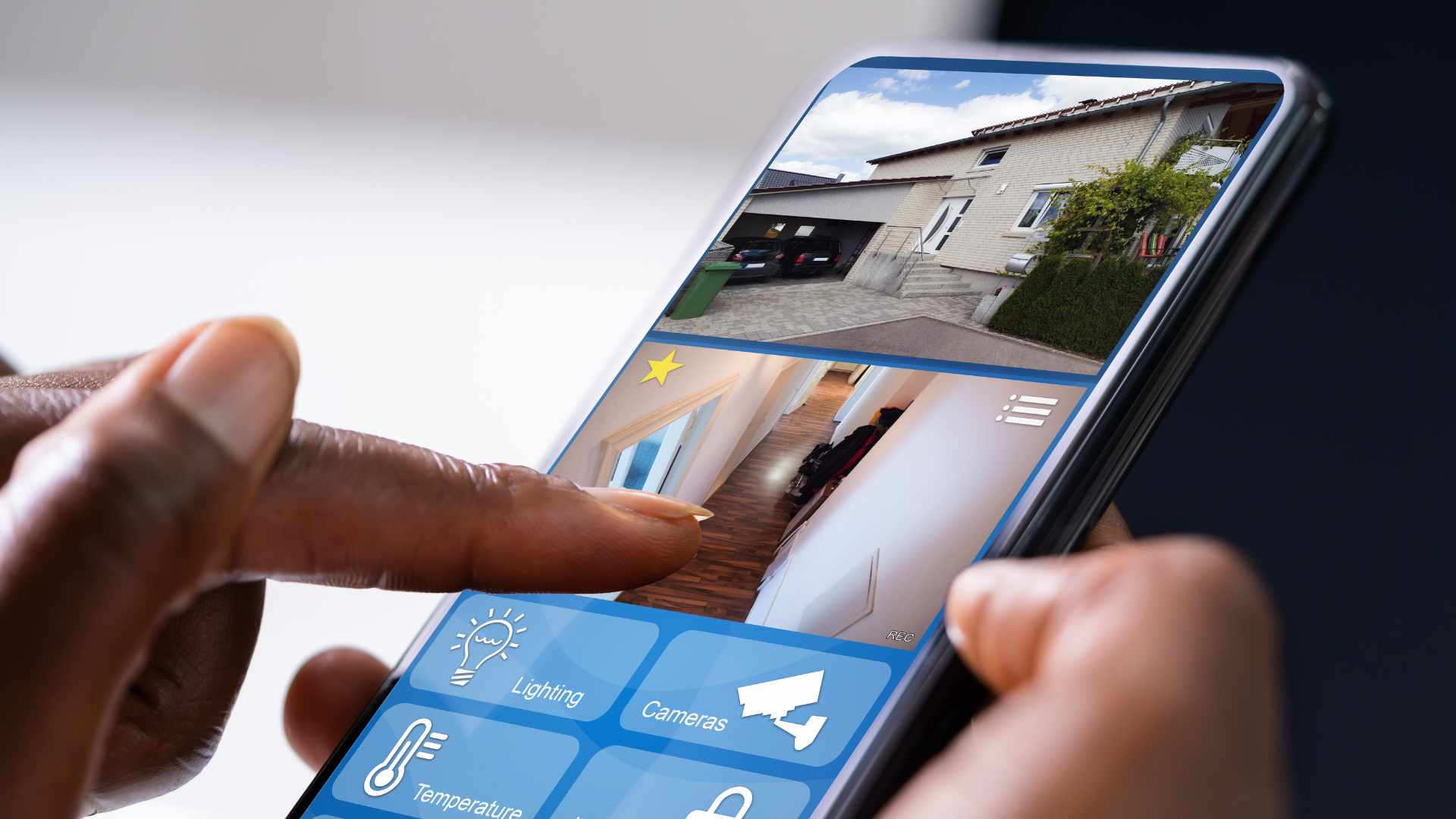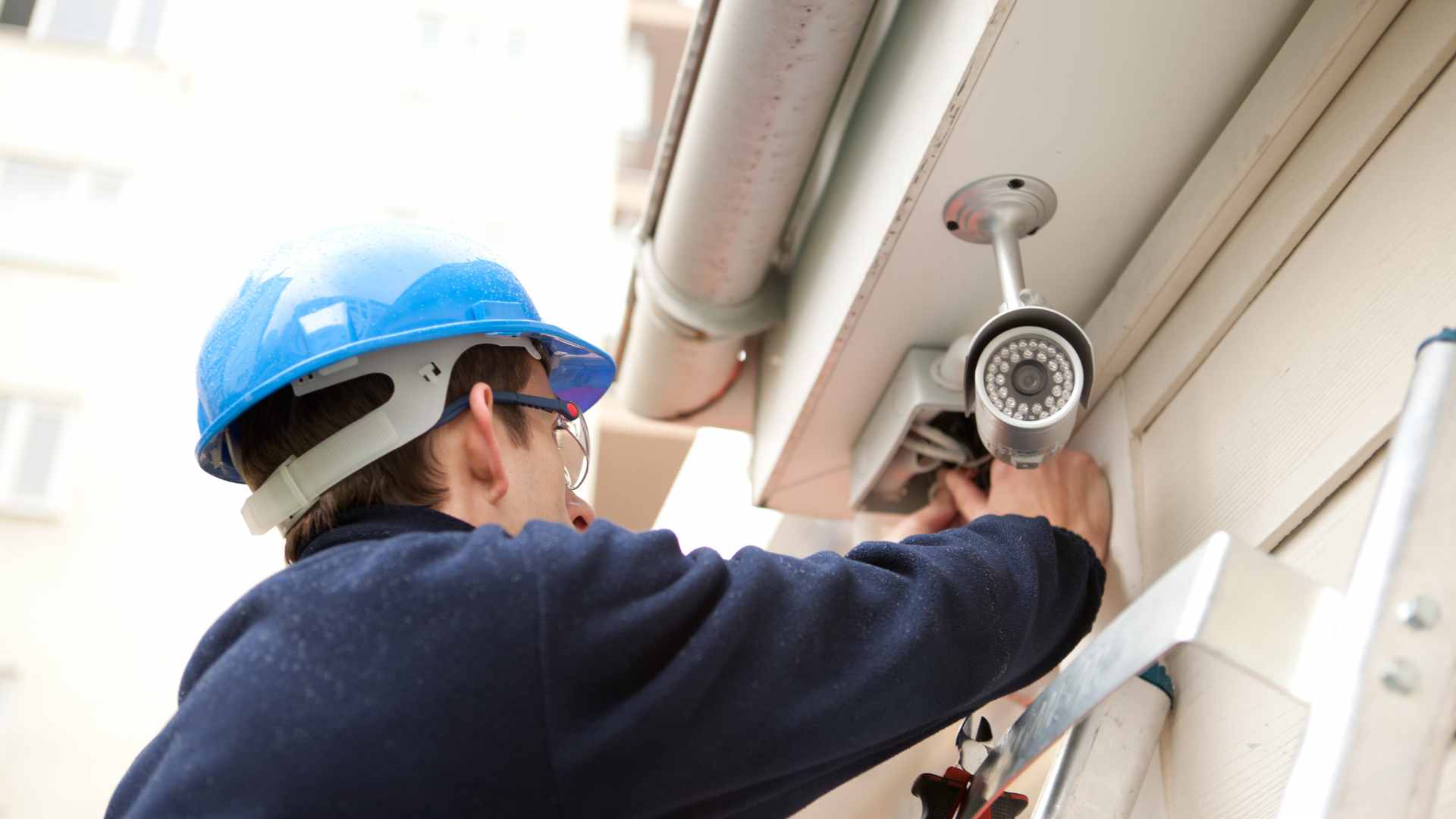Imagine coming home after a long day, only to find your door ajar and your valuable possessions missing. This unsettling scenario is a reality for many homeowners, highlighting the importance of home security. As technology advances, home security systems have become more sophisticated and accessible, but the question remains: is investing in one truly worth it?
In this blog, we aim to know the value of home security systems by addressing critical questions and providing a comprehensive analysis. We will delve into the components of these systems, their effectiveness in deterring crime, and the financial implications of installing them. Additionally, we will explore the non-financial benefits, potential drawbacks, and how to choose the right system for your needs.
Join us as we navigate the intricacies of home security systems, helping you make an informed decision to protect your home and loved ones.
Are Home Security Systems Worth It?
Home security devices provide peace of mind by ensuring your home is protected whether you’re away or asleep. When investing in a home security system, you can opt for either professional monitoring or a DIY approach. Professional monitoring, which comes with a monthly fee, offers 24/7 protection from security agents who are alerted when your alarm is triggered. These professionals can contact emergency services on your behalf if needed.
Alternatively, choosing DIY monitoring eliminates monthly fees while still sending alerts when the alarm is activated. However, in this case, you are responsible for contacting the authorities during an emergency. To decide if home security systems are worth the investment, consider the benefits and evaluate whether they justify the cost. Here are some of the top reasons to consider installing a home security system.
Benefits to Having a Home Security System
Peace of Mind
One of the most significant non-financial benefits of having a home security system is the peace of mind it provides. Knowing that your home is protected against intruders, fires, and other potential threats can significantly reduce anxiety and stress. This psychological comfort extends to all family members, creating a safer and more secure living environment. The assurance that one’s home and loved ones are safeguarded around the clock allows homeowners to focus on other aspects of their lives without constantly worrying about security.
Remote Monitoring
Modern home security systems offer the convenience of remote monitoring, allowing homeowners to keep an eye on their property from anywhere in the world. Through mobile apps and online platforms, users can access real-time video feeds, receive alerts, and control their security system remotely. This capability is particularly valuable for those who travel frequently or have second homes, as it ensures that they can always stay connected and informed about their home’s status. The ability to monitor one’s home remotely adds an extra layer of convenience and control, enhancing the overall sense of security.
Emergency Response
Having immediate access to emergency services is another crucial benefit of a home security system. In the event of a break-in, fire, or medical emergency, the system can automatically alert the appropriate authorities, ensuring a rapid response. This swift action can be critical in mitigating damage and ensuring the safety of residents. Many systems also offer panic buttons and emergency contact features, allowing homeowners to quickly summon help if needed. The integration of emergency response capabilities within a home security system provides an invaluable safety net, ensuring that help is always just a button press away.
Integration with Smart Home Devices
Modern home security systems can seamlessly integrate with other smart home technologies, creating a cohesive and efficient home automation ecosystem. This integration allows users to control various aspects of their home, such as lighting, heating, and door locks, through a single interface. For example, a security system can be programmed to turn on lights and adjust the thermostat when the system is armed or disarmed. This not only enhances convenience but also contributes to energy efficiency and overall home management. The ability to integrate with smart home devices makes modern security systems more versatile and user-friendly, providing a comprehensive solution for home safety and automation.
What Are the Financial Implications of Installing a Home Security System?
Initial Costs
The initial costs of installing a home security system can vary widely depending on the type and complexity of the system chosen. Basic security systems may start at around $300, which typically includes essential components such as door and window sensors, motion detectors, and a control panel. For more advanced systems with features like security cameras, smart home integration, and environmental sensors, costs can range from $1,000 to $2,500 or more. Installation fees also need to be considered, which can add an additional $100 to $500, depending on whether professional installation is required or if it’s a do-it-yourself setup.
Monthly Fees
Beyond the initial investment, home security systems often come with recurring monthly fees, particularly if professional monitoring services are utilised. These fees typically range from $30 to $70 per month. Monitoring services ensure that the home is continually watched by a team of professionals who can respond quickly in the event of an alarm trigger. These fees cover 24/7 surveillance, emergency response coordination, and sometimes additional features such as mobile app access and system maintenance.
Insurance Benefits
One of the financial benefits of installing a home security system is the potential discount on homeowners insurance. Many insurance providers offer discounts to policyholders who have security systems installed, as these systems reduce the risk of burglary and damage. The discount can vary but typically ranges from 5% to 20% of the annual premium. This can result in significant savings over time, partially offsetting the costs associated with the security system.
Cost vs. Savings Analysis
When analysing the financial implications of a home security system, it’s essential to compare the costs against the potential savings. While the initial setup and ongoing monitoring fees represent a financial commitment, these costs can be mitigated by the savings from prevented theft and insurance discounts. For instance, the average cost of a burglary in Australia, including property loss and damage, can exceed $2,000. By preventing even a single break-in, a security system can effectively pay for itself. Additionally, the annual savings on insurance premiums can add up, further offsetting the costs.
While there are clear financial outlays associated with installing a home security system, the potential savings and benefits make it a worthwhile investment. The initial costs and monthly fees are balanced by the reduced risk of theft, potential insurance discounts, and the invaluable peace of mind that comes from knowing one’s home is protected.
What Are the Possible Drawbacks or Issues with Home Security Systems?
False Alarms
One of the primary concerns with home security systems is the occurrence of false alarms. These can be triggered by various factors, such as pets, weather conditions, or even human error. False alarms can be inconvenient and stressful for homeowners, as they may lead to unnecessary panic and disturbance. Additionally, repeated false alarms can strain relationships with neighbours and result in fines from local authorities if emergency services are dispatched without cause. To mitigate this issue, it is crucial to properly calibrate and maintain the system, as well as to educate all household members on its proper use.
Privacy Concerns
The presence of cameras and monitoring devices in a home security system can raise significant privacy concerns. While these devices are intended to enhance security, they can also be perceived as intrusive, especially when placed in sensitive areas like bedrooms or living rooms. There is also the risk of unauthorized access to video feeds and personal data if the system is not adequately secured against hacking. Homeowners must carefully consider the placement of cameras and invest in robust cybersecurity measures to protect their privacy. Transparent communication with family members about the system’s purpose and usage can also help alleviate privacy concerns.
Technical Issues
Home security systems, like all technological devices, are susceptible to technical problems and require regular maintenance. Common issues include malfunctioning sensors, connectivity problems, and outdated software. These technical glitches can compromise the effectiveness of the security system and may require professional assistance to resolve. Regular maintenance, such as software updates and system checks, is essential to ensure the system functions smoothly. However, this can be time-consuming and may incur additional costs, adding to the overall burden of maintaining a home security system.
Initial Setup Hassles
Setting up a home security system can be a complex and time-consuming process, particularly for those who are not tech-savvy. The installation may involve mounting cameras, setting up sensors, and configuring the system to suit specific needs and preferences. Professional installation services can simplify this process but at an additional cost. For do-it-yourself installations, the initial setup may require a significant investment of time and effort to ensure everything is correctly installed and functioning. This complexity can be a deterrent for some homeowners, especially those with busy schedules or limited technical knowledge.
How Do You Choose the Right Home Security System for Your Needs?
Assess Your Needs
Choosing the right home security system begins with a thorough assessment of your specific security needs. Start by considering the size and layout of your home. Larger homes may require more cameras and sensors, while smaller homes might only need basic coverage. Identify the most vulnerable points of entry, such as doors and windows, and determine if you need additional features like motion detectors or environmental sensors for smoke and carbon monoxide. Additionally, consider your lifestyle and whether you need remote monitoring capabilities for when you’re away. Understanding your unique security requirements will help you narrow down the options and select a system that offers comprehensive protection for your home.
Research and Reviews
Once you have a clear understanding of your needs, it’s time to research different home security systems. Look for reputable brands and read customer reviews to gauge the reliability and effectiveness of various systems. Online forums, consumer review websites, and social media can provide valuable insights from other homeowners who have experience with the systems you are considering. Compare features, pricing, and customer service ratings to find a system that fits your budget and meets your security requirements. Pay special attention to any recurring issues mentioned in reviews, as these could indicate potential problems.
Professional Advice
Consulting with security experts can provide personalised recommendations and help you make an informed decision. Many security companies offer free consultations where a professional will assess your home and suggest the best options based on your specific needs. These experts can also answer any questions you may have about installation, maintenance, and system capabilities. Seeking professional advice ensures that you are not overlooking any critical aspects of your home security and that you are choosing a system tailored to your circumstances.
Trial Periods and Guarantees
When selecting a home security system, it’s important to look for options that come with trial periods or satisfaction guarantees. These allow you to test the system in your home environment to ensure it meets your expectations. Trial periods typically range from 30 to 90 days, giving you ample time to evaluate the system’s performance and reliability. Satisfaction guarantees offer peace of mind, knowing that you can return the system for a refund if it doesn’t meet your needs. These options reduce the risk of committing to a system that may not be the right fit for your home.
Conclusion
Investing in a home security system is undeniably worth it for most homeowners. The tangible benefits of preventing theft, reducing insurance premiums, and protecting valuable property are compelling. Additionally, the non-financial advantages, such as peace of mind, remote
monitoring, and quick access to emergency services, significantly enhance the overall quality of life. While there are potential drawbacks, like false alarms, privacy concerns, and maintenance needs, these can be effectively managed with proper planning and informed decision-making. The initial costs and ongoing fees associated with home security systems are balanced by the potential savings from preventing costly break-ins and receiving insurance discounts.
Modern systems’ integration with smart home devices also offers added convenience and efficiency, making them a versatile addition to any household. The decision to install a home security system should be based on a careful assessment of your specific needs, thorough research, and professional advice. By considering trial periods and satisfaction guarantees, you can ensure that the chosen system aligns with your requirements and provides the desired level of security. A home security system stands as a proactive measure to safeguard your home, family, and peace of mind. It’s an investment in security and tranquility that pays dividends well beyond its monetary cost.
FAQs About Home Security System
What Are The Main Benefits Of Installing A Home Security System?
The main benefits include deterrence of criminal activity, continuous monitoring and real-time alerts, protection against fire and hazards, increased property value, insurance discounts, peace of mind, and integration with smart home technology.
How Do Home Security Systems Deter Criminal Activity?
Visible security measures such as security cameras, alarm systems, and yard signs indicate that a property is monitored, which can deter potential intruders from attempting a break-in.
Can A Home Security System Help Reduce Home Insurance Premiums?
Yes, many insurance companies offer discounts on premiums for homes with security systems, which can offset some of the system’s costs.
What Types Of Monitoring Do Modern Security Systems Offer?
Modern security systems offer 24/7 surveillance, real-time alerts, remote access via mobile devices, and continuous footage recording.
Are There Any Financial Benefits To Installing A Home Security System?
A security system can increase property value, making homes more attractive to potential buyers, in addition to potential insurance discounts.



